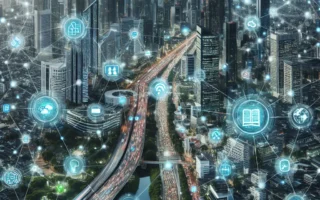Artificial Intelligence and Automation: Revolutionizing the Workplace
Artificial Intelligence (AI) and automation are poised to revolutionize the workplace in the coming years, shaping the future of work across industries. These technological innovations are set to transform the way businesses operate, streamlining processes, and enhancing productivity. AI, powered by machine learning algorithms, enables computers to perform tasks that typically require human intelligence. From predictive analytics to natural language processing, AI is driving a wave of innovation that promises to redefine the modern workplace.
Automation, on the other hand, aims to optimize repetitive and routine tasks, freeing up human capital to focus on more complex and strategic responsibilities. Robotic Process Automation (RPA) and intelligent automation systems are being implemented to handle time-consuming, rules-based activities, allowing employees to concentrate on creative problem-solving and decision-making.
As organizations embrace AI and automation, the nature of work is undergoing a profound transformation. While some fear job displacement, others see the potential for AI to create new roles and opportunities. Upskilling and reskilling the workforce will be crucial in preparing employees for the evolving landscape, ensuring that they can harness the power of these technologies effectively. Additionally, ethical considerations surrounding AI and automation implementation, such as data privacy and algorithmic biases, must be carefully navigated to build a responsible and sustainable future of work.
Remote Collaboration Tools: Redefining the Modern Office Environment
The rapid development of technology has significantly impacted the modern workplace, leading to the rise of remote collaboration tools that are redefining the traditional office environment. With the increasing trend of remote work, the need for efficient virtual collaboration has become more crucial than ever. Various innovative tools and platforms such as video conferencing software, project management applications, and cloud-based document sharing systems have emerged to facilitate seamless collaboration among remote teams. These tools not only enable real-time communication but also foster a sense of connectedness and teamwork, overcoming the challenges of geographical barriers.
One of the key advantages of remote collaboration tools is their ability to enhance productivity and efficiency in a virtual work setting. Features such as screen sharing, virtual whiteboards, and instant messaging facilitate smooth information exchange and brainstorming sessions, mimicking the dynamics of in-person interactions. Furthermore, the integration of advanced security protocols ensures the protection of sensitive data, addressing the concerns related to remote data access and sharing.
As the demand for flexible work arrangements continues to grow, the integration of these remote collaboration tools into the modern office environment has become imperative. Employers are recognizing the significance of investing in reliable digital platforms that empower their remote workforce, ultimately shaping the future of work. The seamless integration of remote collaboration tools not only fosters productivity but also contributes to a more balanced work-life integration, emphasizing the importance of flexibility and adaptability in the evolving landscape of modern work.
Blockchain and Cryptocurrency: Impact on Financial Transactions in the Digital Age
Blockchain and cryptocurrency are revolutionizing the way financial transactions are conducted in the digital age. By providing a decentralized and secure way to record and transfer data, these technologies have the potential to significantly impact the future of work, particularly in the realm of finance and transactions.
Blockchain, the underlying technology behind cryptocurrencies such as Bitcoin and Ethereum, is a distributed ledger that records transactions across a network of computers. This decentralized nature means that transactions are secure, transparent, and resistant to modification. As a result, it eliminates the need for intermediaries, such as banks, in many financial transactions, reducing costs and increasing efficiency.
Cryptocurrencies, on the other hand, provide a digital means of exchange that is secured by cryptography and operates independently of a central bank. The potential for borderless, low-cost, and near-instantaneous transactions has significant implications for the future of global commerce and remote work.
Moreover, the use of smart contracts – self-executing contracts with the terms of the agreement directly written into code – built on blockchain technology, has the potential to automate and validate numerous aspects of work, including payments, contract management, and supply chain interactions.
As blockchain and cryptocurrency continue to evolve and gain acceptance, their impact on financial transactions in the digital age will continue to grow, presenting both opportunities and challenges for the future of work.



